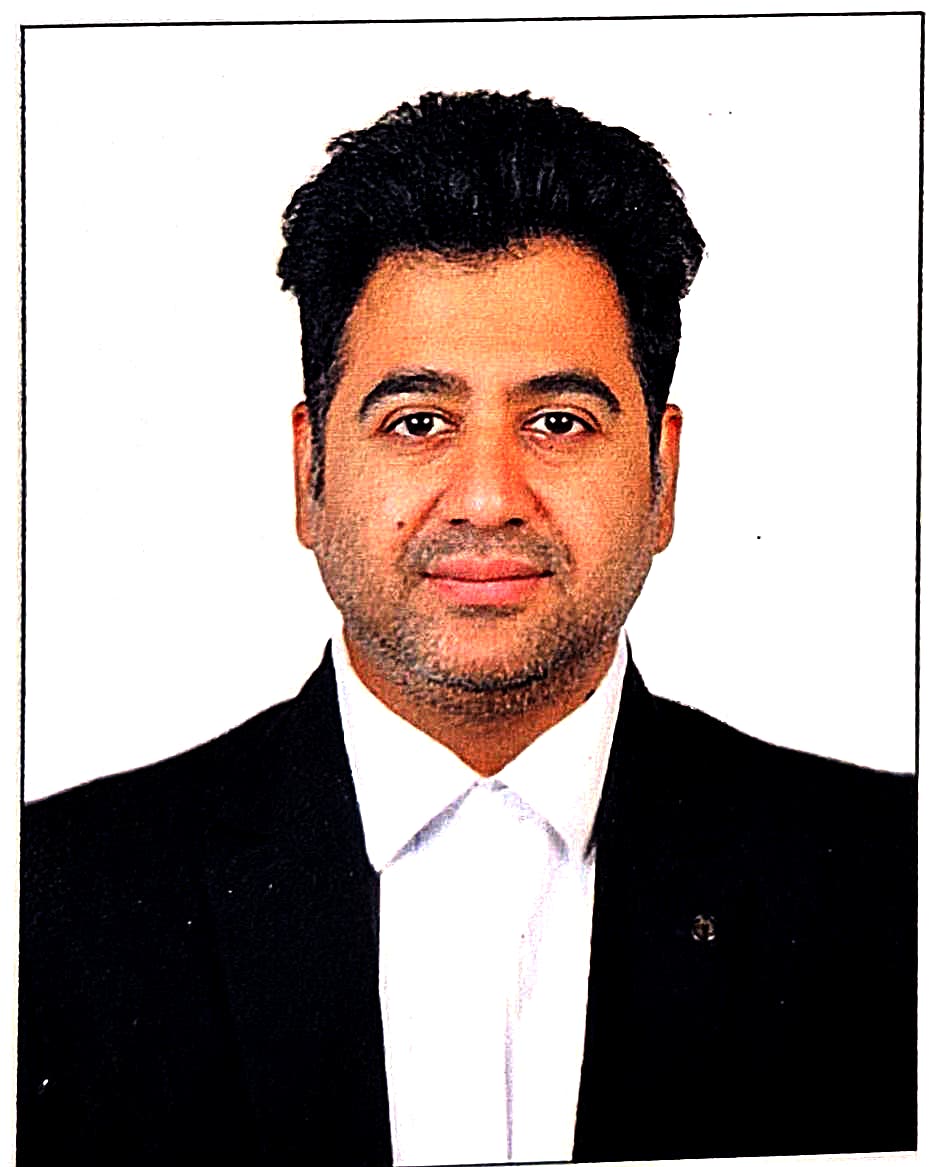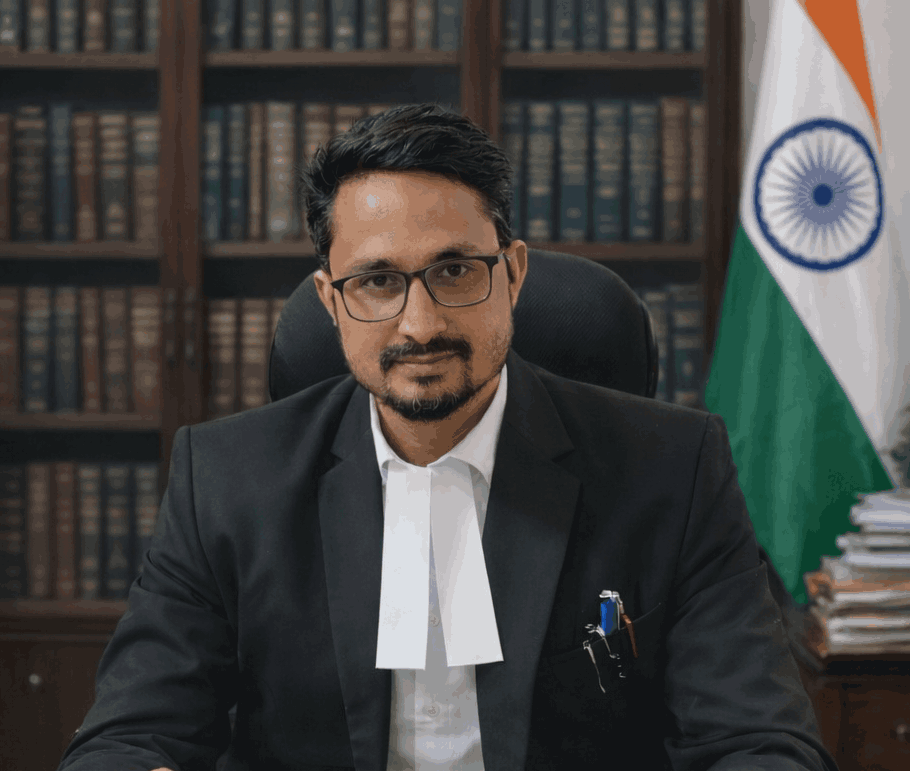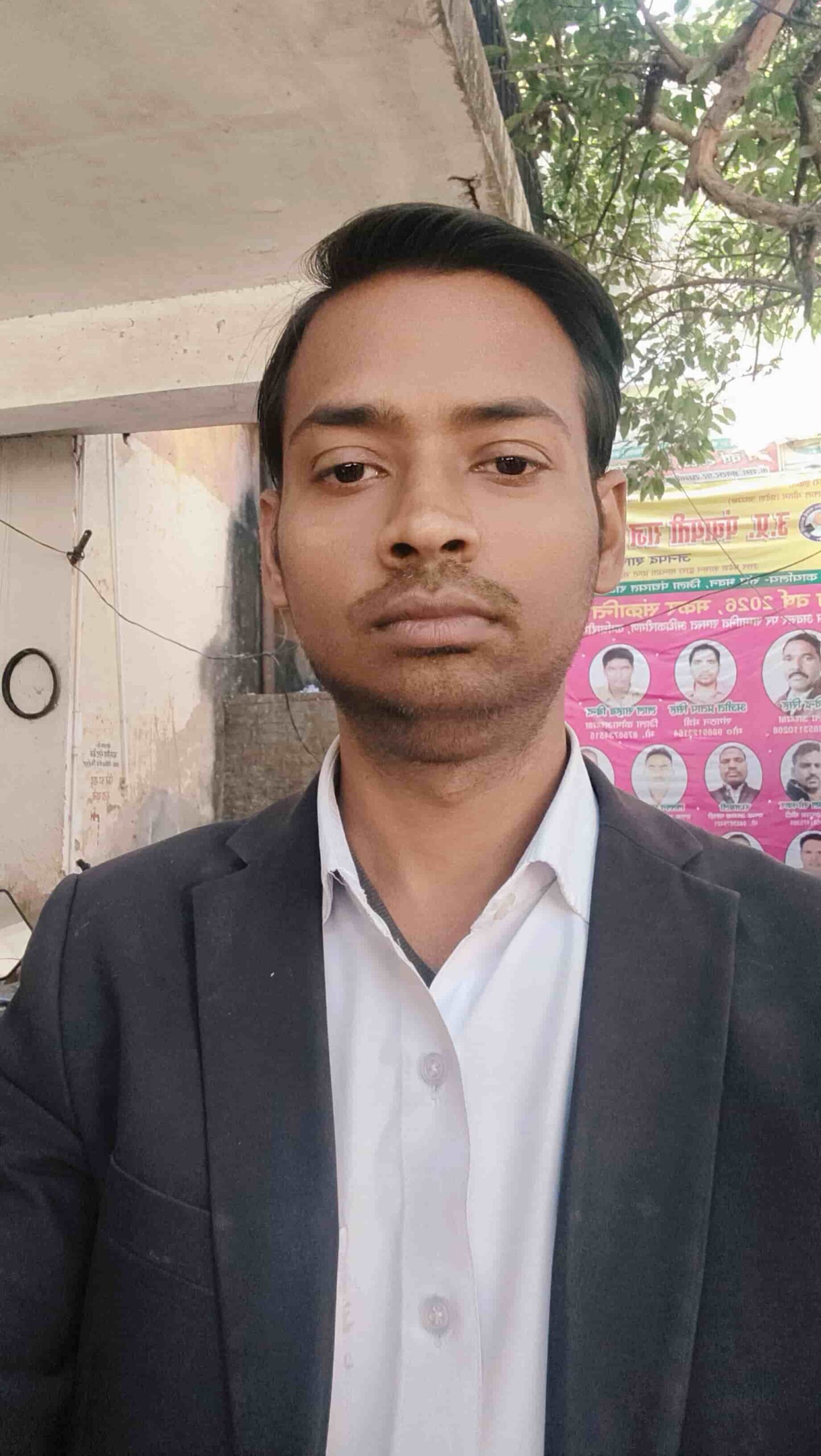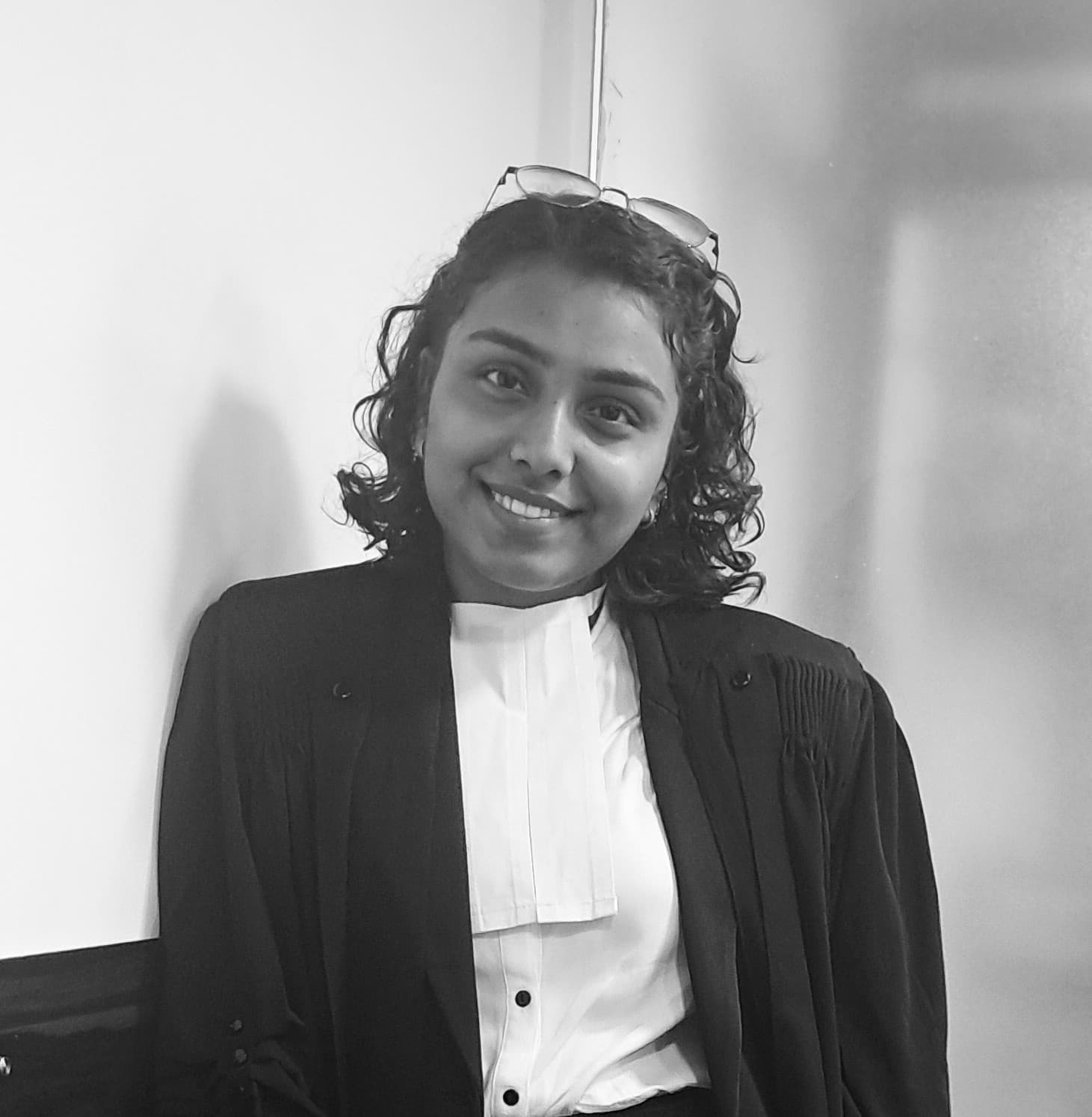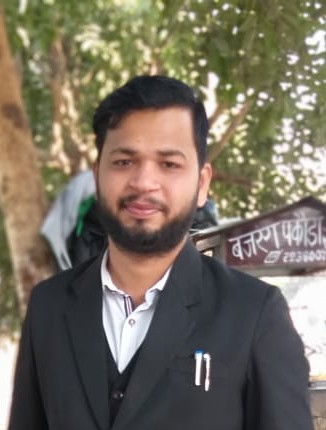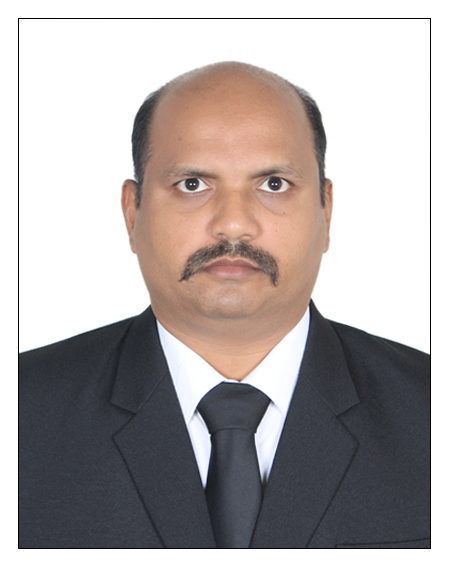Best Lawyers in India – Top Advocates & Legal Experts Near You
Having the right lawyer is one of the most crucial things to do when you have legal issues. Right to Law provides you with the best lawyers in India, who are renowned for their expertise, experience, and commitment to justice.
India has a very comprehensive legal system dealing with family conflicts, corporate affairs, criminal cases, financial fraud, and intellectual property rights. Only the best lawyers can assist you properly in such matters. Through Right to Law, you have access to specialist lawyers in India who have been selected based on their successful track record.
Search for top-rated lawyers
Top lawyers in India
Get Legal Clarity at Your Doorstep
Need legal help but don’t want the hassle of visiting offices? Book a personal meeting with our experienced legal manager at your location. Understand your case, get expert guidance, and take the next steps with confidence — all from the comfort of your home or office. Pre-paid, convenient, and confidential. Now available in your cities. Book your visit today and let the law come to you.
We know that delicate matters like divorce, child custody, domestic violence, or property matters need not only legal expertise but also empathy. That’s why we offer legal counsel with the best lawyers who listen and advise with sensitivity. Enterprises and startups also bank upon us for the best lawyer consultation services in domains such as GST, corporate tax, copyright, and finance.
For criminal cases- fraud, cybercrime, bounced checks, or corruption- our portal has the best lawyers in India who provide tough representation. Be it consumer court proceedings or immigration, civil disputes or media law, our network has every branch of law covered.
With online consultation, you can now avail the services of top lawyer consulting anywhere in India. Every lawyer in our panel is rated on performance in the Supreme Court, high courts, and district courts.
Every case is important at Right to Law. We assure you that you are represented by the top lawyers in India, providing you with peace of mind and trusted legal advice at each step.
Why choose Right to Law?
Selecting the best legal ally matters. Here’s why individuals have faith in the Right to Law:
- Network of Best Lawyers
We have the best lawyers in India in all domains, so you will never be without the right specialist.
- Expert Legal Assistance
From corporate tax to divorce, from cybercrime to criminal defense, you have access to the best lawyers for all kinds of cases.
- Best Legal Advice at Each Step
Our lawyers offer the finest legal advice in India that is clear, practical, and effective. We are concerned with solving problems and not making them complicated.
- Affordable Lawyer Consultation Services
With the best lawyer consultation services, you can access legal aid without having to break the bank. We think that justice has to be within everyone’s reach.
- Trusted by Thousands
We are trusted by our clients because we only match them up with winning lawyers. Many of our lawyers are known as the best advocates in India.
- Quick and Easy Access
Legal assistance at your fingertips. Through our portal, you can reach legal guidance with the top lawyers at any time and from any place.
- Committed to Justice
At Right to Law, we believe in justice, integrity, and outcomes. We aim to offer professional assistance from the finest lawyers in India so that every voice gets an ear.
RERA (Real Estate Regulating Act) Legal Services
Buying one’s own house is a big dream for any person. In India, buying one’s own house is the biggest sign of stable achievement in any person’s life. However, after completing their dream, people often face disappointment due to project delays, construction defects, or false promises by builders. Don’t worry, there are laws and regulations to help buyers tackle this problem. The Real Estate (Regulation and Development) Act of 2016 was passed by the government to handle this issue more effectively. We offer comprehensive legal support under RERA, ensuring your rights are protected and justice is served.
Agreement Drafting & Legal Documentation
“Prevention is better than cure” is a common saying, and it holds great significance in the legal field. Drafting professional agreements and maintaining proper legal documentation helps protect your rights and prevent future disputes. Our firm provides expert and specialized lawyers who assist with drafting, reviewing, and negotiating a wide range of legal documents to safeguard your personal and commercial interests.
Agreements We Draft and Review
- Sale Agreements – It’s essential to establish sale agreements for secure contracts between the seller and consumer for immovable property, business transfers, and movable property.
- Lease and Rental Agreements- We create lease and rental agreements to safeguard the interests of tenants and landlords in residential, commercial, or industrial leases.
- MoUs (Memorandums of Understanding)- MoUs are basic agreements between parties before entering into a formal contract. They establish a preliminary understanding of the terms and conditions that will be followed in the final agreement.
- Development Agreements- Development agreements are legal documents between landowners and developers. These documents ensure responsibilities and duties between both parties for the smooth execution of the development project.
Joint Venture Agreements– Joint venture agreements establish strong business relationships in real estate, startups, and partnership firms.
Consumer Court Representation & Legal Assistance
Are you facing issues with defective products, poor service quality, or delays in property possession? Don’t worry, our legal team assists you in filing complaints in consumer courts and forums to recover financial losses and ensure your rights under the Consumer Protection Act are protected.
Cheque Bounce & Negotiable Instruments Act (NI Act) Cases
You receive one cheque from your client and you deposit that cheque into the bank. After 2 days, you receive a message from the bank that the cheque you deposited has bounced. The reason for the cheque bounce is insufficient funds in the client’s bank account. Now you and the client both have to pay a penalty for this because cheque bouncing is a crime as per Section 138 of the Negotiable Instruments Act.
Now you think, why should I bear these expenses when the mistake is not from my side? But don’t worry, our legal team will assist you effectively in this situation. We provide legal support for both parties, the cheque recipient (complainant) and the cheque issuer (accused). We are with you from the initial stage, like sending notice to the opposite party, to representing your case in court.
Family and Matrimonial Law Services
Family and matrimonial cases arise from the complexities of family relationships, due to this, these types of cases are more sensitive for the individual involved. Solving family disputes is a legally crucial task. Don’t worry, our firm’s legal experts will assist you in handling these family law cases efficiently. Our experts provide impactful legal strategies to solve these matters. Whether it’s divorce proceedings, maintenance claims, domestic violence, or child custody matters and whether you are a husband, wife, or live-in partner, we provide professional legal services in all these crimes.
Divorce and Legal Separation
We assist you in filing a mutual or contested divorce as per the Hindu Marriage Act, Special Marriage Act, or any other personal laws related to divorce and legal separation.
Our services include:
- Drafting accurate draft settlement agreements, divorce petitions, and rejoinders.
- Giving professional advice on grounds for divorce, for cruelty, desertion, adultery, and irretrievable breakdown of marriage
- Professionally represent our clients in the family courts and district courts.
- Help couples or parties resolve their disputes through negotiation and mediation.
Maintenance and Alimony
Whether you’re a claimant or a respondent, we assist you effectively in both situations. Our experts provide professional advice to ensure you get fair financial arrangements.
Our services include:
- Helping you file or defend claims as per Section 125 of the CrPC, the Hindu Adoption and Maintenance Act, and other personal laws related to maintenance and alimony.
- Seeking interim and permanent maintenance for spouse, children, and dependent persons.
- Assisting clients with the enforcement of court-ordered maintenance.
- Providing expert legal advice on the financial rights of working or non-working spouses, including maintenance in live-in relationships or second marriages.
Domestic Violence (DV) Cases
Our lawyers assist both in protecting women’s rights and in responding to false allegations that are filed under the Domestic Violence Act, 2005.
We help with:
- Drafting and filing domestic violence complaints before the Magistrate.
- Securing residence orders, protection orders, and monetary relief.
- Assisting carefully with cases that involve emotional, physical, financial, and verbal abuse.
- Representing both aggrieved women and respondents in court. Also, helping coordinate with police authorities when necessary.
Child Custody & Visitation
We assist you in the process of child custody with the certainty of protecting the child’s interests in the custody and guardianship disputes.
We help with:
- Filing an appeal for child custody under the Guardian and Wards Act.
- Filing petitions for sole, joint, or third-party custody.
- Securing visitation rights and modifying custody terms as needed.
- Helping clients through the process of mediation and child-centric resolutions.
Need Bail, Legal Defense, or FIR Quashing
Our firm provides professional criminal legal services for accurate legal relief. Whether you’ve been wrongfully arrested, are facing malicious allegations, or want protection against arrest, don’t worry, our legal team will assist you in all criminal matters by providing accurate legal strategies and legal remedies. We help you throughout the entire process, from the initial stage, such as FIR registration, to trial and appeal.
Bail services
Whether it’s District Courts, Sessions Courts, or High Courts, we provide accurate legal services to clients for securing bail quickly and effectively in all types of criminal cases. Let’s see in detail which type of bail services are provided by our firm:
Anticipatory Bail (Before Arrest)
We prevent you from custodial arrest in cases involving false and fabricated allegations by drafting and filing anticipatory bail.
Regular Bail (After Arrest)
We file and represent regular bail after the arrest of the accused for the release and prevention from judicial custody by arguing for bail before the appropriate court.
Interim Bail
If you need urgent protection from arrest for a short period for any valid reason, such as medical grounds or other emergencies. We also file an interim bail for you to get temporary relief before a final decision or regular bail.
Bail Cancellation and Oppositions
We also assist with cancellations and oppositions for bail on behalf of victims by presenting strong legal grounds, such as violation of bail conditions, threats to the victim, or tampering with evidence, to cancel bail.
Courts covered for Bail Matters
- District Courts
- Sessions Courts
- High Courts (Writs and Special Leave Petions before the Supreme Court, if applicable)
Criminal Defense
Our firm’s legal experts provide robust representation at every stage of the criminal defense process to protect your rights. We have legal experts who have expertise in the Indian Penal Code, as well as special laws such as NIA, NDPS, POCSO, etc. We provide complete case management strategies, including effective drafting, case strategy, trial preparation, and accurate cross-examination.
We assist you in negotiating plea bargains, settlements, and discharge applications so you get favorable results and protection from hampering your rights. Our team professionally handles appeals in higher courts to challenge unfavorable court orders and decisions. We provide legal support for defence in white-collar crimes like financial fraud, cybercrimes such as misuse of data, online fraud, and other internet-related crimes, and corporate offences, including corporate misconduct, compliance issues, and crimes related to corporate governance.
FIR Quashing (Section 482 CrPC)
We professionally represent your case in front of the High Court when FIR’s against you are filed with fabricated events. On that basis, the High Court can provide orders for quashing false FIR’s as per the power given to them by Section 482 of the CrPC.
- Providing expert advocates for filing petitions before high courts and effectively representing them to quash false or frivolous FIRs.
- Providing an effective legal strategy where the complaint is based on fabricated events.
- Professionally drafting compromise agreements for compoundable offenses to get favorable settlements.
- Helping to shift urgent and sensitive cases into fast-track hearings to get timely justice.
- Giving experts legal remedies to get relief from unnecessary harassment and criminal proceedings.
Crimes Against Women and Morality
In India, crimes against women are increasing day by day, hampering women’s rights and attacking their morality. In Indian jurisdiction, there are multiple laws available to protect the rights of women, and our firm’s legal experts assist you accurately in the use of these laws. Our firm’s legal experts provide accurate legal representation in sensitive and high-stakes cases involving allegations of sexual offenses and domestic cruelty. Let’s see in detail which sections of the IPC deal with this crime.
Section 376 IPC – Rape
Our experts professionally provide legal defense and prosecution in rape trials, including protection of identity, evidence handling, and the appeal process, and help shift these types of sensitive cases to fast-track courts.
Section 375 IPC – Definition of Rape
We assist rape victims in proving the charge of rape against the accused. But we also strongly represent the accused in court if the charge of rape against them is false or fabricated and when the opposite party tries to misuse sexual offense provisions.
Section 498A IPC – Cruelty by Husband or Relatives
Filing and representing complaints of aggrieved women against cruelty by husbands or relatives. Also, we defend the accused in court when the case against him is filed for false reasons.
Section 354 IPC – Assault or Criminal Force to Outrage Modesty
Representing cases that involve molestation, stalking, or inappropriate behaviour allegations. Also defending these cases from the accused side with valid legal facts.
Section 497 IPC – Adultery
Adultery is now decriminalised, but it’s still used as strong grounds for divorce. We provide professional advice on how to use this as grounds for divorce.
Violent Offences
Our firm’s experts provide accurate guidance on how to handle serious offenses such as bodily harm, threats to life, or use of deadly weapons, as well as representing your case effectively in the appropriate jurisdiction.
Section 302 IPC – Murder
We provide complete representation, full trial defense, anticipatory bail in suspicion-based FIRs, and appeals in wrongful conviction cases.
Section 304 IPC – Culpable Homicide
We provide accurate legal defence, differentiate charges of murder and culpable homicide with intent, and reduce charges or secure bail.
Section 307 IPC – Attempt to Murder
Expert lawyers of our firm provide legally valid defences for charges of attempt to murder, whether disputes arise out of property, personal enmity, or accidental injuries.
Section 323 IPC – Voluntarily Causing Hurt
We provide bail and defence services in cases of physical altercations or retaliatory assaults, including self-defense or mutual fight claims.
Section 506 IPC – Criminal Intimidation
Our expert team provides legal protection against false threats and support in filing or defending complaints.
Property & Financial Offences
Our firm provides expert legal advice to clients in cases of financial fraud, cheating, and trust breaches, ensuring proper evidence collection and financial recovery wherever applicable, along with defences and resolutions.
Section 420 IPC – Cheating and Dishonest Inducement
We assist you with the help of our legal experts in handling builder fraud, online scams, job scams, and investment cheating cases.
Section 406 IPC – Criminal Breach of Trust
We professionally represent your cases that involve entrusted money, goods, or misuse of property to get you desirable results and secure your financial loss.
Section 120B IPC – Criminal Conspiracy
We provide strategic defence on bail and organised crime allegations and also provide pre-trial advisory in criminal conspiracy charges.
Section 279 IPC – Rash and Negligent Driving
Providing defence in accident-related FIRs and criminal liability under traffic laws.
Public Order & Miscellaneous Offences
We provide legal assistance for daily life miscellaneous disputes such as common FIRs related to public disturbance, wrongful restraint, and minor provocations, often arising in domestic, neighbourhood, or workplace disputes.
Section 144 IPC – Unlawful Assembly Restrictions
We are providing legal advisory and representation in cases involving protests, gatherings, and curfew violations.
Section 504 IPC – Intentional Insult to Provoke Breach of Peace
We provide dispute resolution and defence in cases involving intentional insult or provocation that may create a breach of the peace.
Section 341 IPC – Wrongful Restraint
Representing cases that involve blocked movement, road rage, or local disputes.
Section 100 IPC – Right of Private Defence
We provide legal support in justifying self-defence in physical or retaliatory harm cases.
Frequently Invoked in FIRs & Chargesheets
We also handle these IPC sections that are often clubbed with other offences in FIRs, and we provide full-service defence and legal assistance for crimes that relate to these sections.
Section 34 IPC – Common Intention
We provide advisory and defence when accused of being implicated due to presence at a crime scene or group act.
Section 120B IPC – Criminal Conspiracy
We assist in challenging criminal conspiracy with the use of the most suitable legal strategy to challenge conspiracy charges without the direct involvement of the accused.
Section 498A IPC – Dowry-related Cruelty
We represent cases that relate to dowry-related crimes for both parties, such as aggrieved women and falsely accused individuals.
Section 376 IPC – Sexual Offences
Our firm takes special care in handling, defending, or initiating sexual offence cases involving multiple legal angles.
Conclusion
Legal issues might be daunting, but having the correct lawyer makes them manageable. Right to Law is of the view that each business and individual deserves expert assistance from India’s finest lawyers. Our purpose is to make justice more accessible by linking clients with skilled lawyers in India who provide reliable outcomes.
From family and business matters to cybercrime, property disputes or consumer complaints, get expert advice you can trust. We offer reasonable prices so that anyone can afford it and get the right justice from the best advocate in India.
When you choose the right to law, you are not just engaging the services of a lawyer – you are receiving a reliable guide in your legal process. Supported by the best lawyers in India, you can deal with disputes with assurance and move forward with peace of mind.

